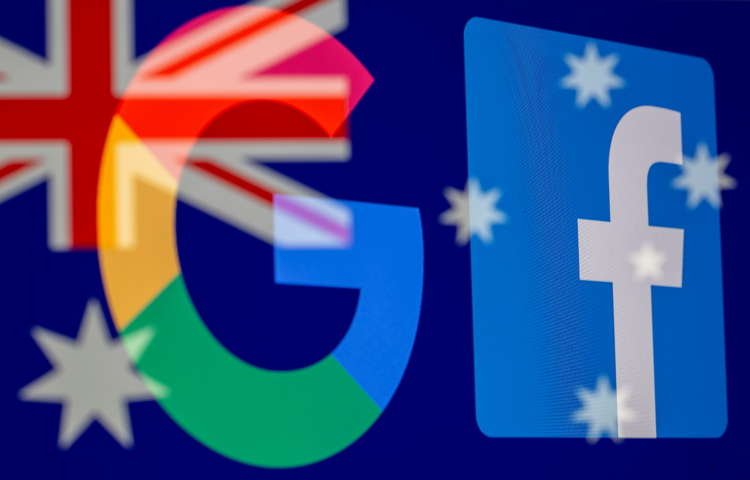Facebook ‘refriends’ Australia after changes to media laws
Published by linker 5
Posted on February 23, 2021
5 min readLast updated: January 21, 2026

Published by linker 5
Posted on February 23, 2021
5 min readLast updated: January 21, 2026

By Byron Kaye and Colin Packham
CANBERRA (Reuters) – Facebook will restore Australian news pages, ending an unprecedented week-long blackout after wringing concessions from the government over a proposed law that will require tech giants to pay traditional media companies for their content.
Both sides claimed victory in the clash, which has drawn global attention as countries including Canada and Britain consider similar steps to rein in the dominant tech platforms and preserve media diversity.
While some analysts said Facebook had defended its lucrative model of collecting ad money for clicks on news it shows, others said the compromise – which includes a deal on how to resolve disputes – could pay off for the media industry, or at least for publishers with reach and political clout.
“Facebook has scored a big win,” said independent British technology analyst Richard Windsor, adding the concessions it made “virtually guarantee that it will be business as usual from here on.”
Australia and the social media group had been locked in a standoff after the government introduced legislation that challenged Facebook and Alphabet Inc’s Google’s dominance in the news content market.
Facebook blocked Australian users on Feb. 17 from sharing and viewing news content on its popular social media platform, drawing criticism from publishers and the government.
But after talks between Treasurer Josh Frydenberg and Facebook CEO Mark Zuckerberg, a concession deal was struck, with Australian news expected to return to the social media site in coming days.
“Facebook has refriended Australia, and Australian news will be restored to the Facebook platform,” Frydenberg told reporters in Canberra.
Frydenberg said Australia had been a “proxy battle for the world” as other jurisdictions engage with tech companies over a range of issues around news and content.
Australia will offer four amendments, which include a change to the proposed mandatory arbitration mechanism used when the tech giants cannot reach a deal with publishers over fair payment for displaying news content.
‘UNTESTED’
Facebook said it was satisfied with the revisions, which will need to be implemented in legislation currently before the parliament.
“Going forward, the government has clarified we will retain the ability to decide if news appears on Facebook so that we won’t automatically be subject to a forced negotiation,” Facebook Vice President of Global News Partnerships Campbell Brown said in a statement online.
The company would continue to invest in news globally but also “resist efforts by media conglomerates to advance regulatory frameworks that do not take account of the true value exchange between publishers and platforms like Facebook.”
Analysts said while the concessions marked some progress for tech platforms, the government and the media, there remained many uncertainties about how the law would work.
“Retaining unilateral control over which publishers they do cash deals with as well as control over if and how news appears on Facebook surely looks more attractive to Menlo Park than the alternative,” said Rasmus Nielsen, head of the Reuters Institute for the Study of Journalism, referring to Facebook headquarters.
Any deals that Facebook strikes are likely to benefit the bottom line of News Corp and a few other big Australian publishers, added Nielsen, but whether smaller outlets win such deals remains to be seen.
Tama Leaver, professor of internet studies at Australia’s Curtin University, said Facebook’s negotiating tactics had dented its reputation, although it was too early to say how the proposed law would work.
“It’s like a gun that sits in the Treasurer’s desk that hasn’t been used or tested,” said Leaver.
COOLING-OFF PERIOD
The amendments include an additional two-month mediation period before the government-appointed arbitrator intervenes, giving the parties more time to reach a private deal.
It also inserts a rule that an internet company’s existing media deals be taken into account before the rules take effect, a measure that Frydenberg said would encourage internet companies to strike deals with smaller outlets.
The so-called Media Bargaining Code has been designed by the government and competition regulator to address a power imbalance between the social media giants and publishers when negotiating payment for news content used on the tech firms’ sites.
Media companies have argued that they should be compensated for the links that drive audiences, and advertising dollars, to the internet companies’ platforms.
A spokesman for Australian publisher and broadcaster Nine Entertainment Co Ltd welcomed the government’s compromise, which it said moved “Facebook back into the negotiations with Australian media organisations.”
Major television broadcaster and newspaper publisher Seven West Media Ltd said it had signed a letter of intent to strike a content supply deal with Facebook within 60 days.
A representative of News Corp, which has a major presence in Australia’s news industry and last week announced a global licensing deal with Google, was not immediately available for comment.
Frydenberg said Google had welcomed the changes. A Google spokesman declined to comment.
Google also previously threatened to withdraw its search engine from Australia but later struck a series of deals with publishers.
The government will introduce the amendments to Australia’s parliament on Tuesday, Frydenberg said. The country’s two houses of parliament will need to approve the amended proposal before it becomes law.
(Reporting by Colin Packham and Byron Kaye; additional reporting by Renju Jose, Kate Holton and Douglas Busvine; Writing by Jonathan Barrett; Editing by Sam Holmes and Mark Potter)
Explore more articles in the Top Stories category











